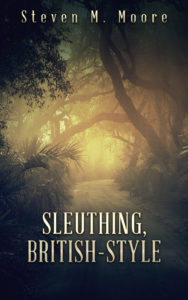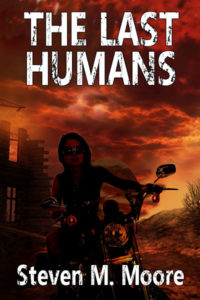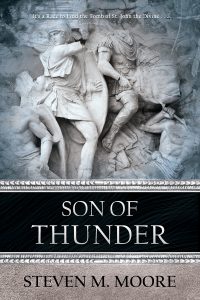The inevitable destruction of the English language…
The US does it. The UK and the rest of the Commonwealth countries do it too. English is more than evolving; it’s being destroyed. I noticed this a lot more while writing my British-style mysteries: It seems like every region of the UK (comprised of England, Northern Ireland, Scotland, and Wales), and even smaller regions, has local variations of the king’s English (who hardly speaks English well himself!). Eliza Doolittle’s Cockney still exists in the back streets and slums of the Old Smoke, and many in Scotland and Wales mix another language freely with what seems to be English if you concentrate on what’s being said.
Back in the USA, I have a hard time understanding a Texan, especially when they try to speak English and not Spanish. And this isn’t a new phenomenon: I grew up in California where American English (whatever that is!) was heard along with Armenian, Chinese, Japanese, Spanish, Vietnamese, etc., etc. In other words, the US is as bad as (or worse than?) the UK when it comes to using dialects and slang. Only a few UK authors help US readers like I do, creating a glossary; and few US authors (including myself, I’ll admit) ever help UK readers by doing so, most likely because the US has a larger population so it’s harder to keep up with all the variations that so often become acceptable: “pretty” instead of “very”; “way” in place of “too”; “weren’t” instead of “isn’t” and “wasn’t”; “bad” in place of “good,” but meaning the same thing; etc., etc. Most Americans don’t even notice the many corruptions of English, but they must drive our English friends across the pond mad. They can drive me crazy! (“Mad” in the UK often means “crazy” in the US.)
From Belfast to Southampton, you have language variations; from Boston to El Paso, you have them as well. Some publishers insist that their editors demand “standard English usage,” whatever the hell that means. For my small-press published novels, I often fought with these editors and their futile demands that I use “standard English.” Anyone that believes there’s only only one version of English must be smoking a lot of pot (weed, MJ, …) or snorting a lot of coke (blowing powder, snorting dust, …): There is no such thing as standard English, either here or across the pond.
 As I stated, in my British-style mysteries, my feeble attempt at peacemaking takes the form of a glossary. I started to include one more to help me write the short stories in Sleuthing, British-Style. (That first collection is one of three and available in ebook format most everywhere; the other two are free PDF downloads—see the “Free Stuff & Contests” web page for a complete list.) I wrote those stories more as a bow to or in celebration of this subgenre because those British-style mysteries saved my sanity during the Covid pandemic when I read entire series sheltered in place.
As I stated, in my British-style mysteries, my feeble attempt at peacemaking takes the form of a glossary. I started to include one more to help me write the short stories in Sleuthing, British-Style. (That first collection is one of three and available in ebook format most everywhere; the other two are free PDF downloads—see the “Free Stuff & Contests” web page for a complete list.) I wrote those stories more as a bow to or in celebration of this subgenre because those British-style mysteries saved my sanity during the Covid pandemic when I read entire series sheltered in place.
Maybe these variations in English would never have occurred if there’d been an official committee appointed by the royal family to maintain the purity of the English language? The French have tried to do that with their infamous Academie (was that a creation of Napoleon, like the metric system?—that little corporal was a smart cookie, except when it came to Wellington), but the French’s task is much easier: Not as many people speak that language! (But French in Quebec sounds like sixteenth-century French to me, and French in Switzerland differs from French in Lyon, Strasbourg, and Paris.)
 To paraphrase Tom Clancy, fiction has to seem real. And part of our world’s reality is that languages evolve and develop local variants, especially when they’re used a lot. I probably worry about it more than I need to. (Clancy, on the other hand, probably never did…and, in his ignorance, was probably “pretty” happy avoiding the whole problem!) I’m absolutely certain that publishers and their editors shouldn’t make a big deal about it, though. They could suggest my same solution after all: Tell their authors to include a glossary! Hell, they could even add some new jobs to the publishing bureaucracy where a publisher hires blokes who specialize in creating glossaries. They probably would rather force authors to do that than have authors create glossaries on their own initiative; they love to boss us around. after all!
To paraphrase Tom Clancy, fiction has to seem real. And part of our world’s reality is that languages evolve and develop local variants, especially when they’re used a lot. I probably worry about it more than I need to. (Clancy, on the other hand, probably never did…and, in his ignorance, was probably “pretty” happy avoiding the whole problem!) I’m absolutely certain that publishers and their editors shouldn’t make a big deal about it, though. They could suggest my same solution after all: Tell their authors to include a glossary! Hell, they could even add some new jobs to the publishing bureaucracy where a publisher hires blokes who specialize in creating glossaries. They probably would rather force authors to do that than have authors create glossaries on their own initiative; they love to boss us around. after all!
***
Comments are always welcome. (Please follow the rules on the “Join the Conversation” web page.)
 Two overly edited small-press novels? The Last Humans (the first book in “The Last Humans Trilogy”) and Son of Thunder (the second book of nine in the “Esther Brookstone Art Detective” series), the first novel from Penmore Press and the second from Black Opal Books, perhaps earned this distinction. Whether the over-editing made them better is questionable; both edits did damage to this author’s voice, but that’s just my take. Readers might not care, of course, because the stories are interesting.
Two overly edited small-press novels? The Last Humans (the first book in “The Last Humans Trilogy”) and Son of Thunder (the second book of nine in the “Esther Brookstone Art Detective” series), the first novel from Penmore Press and the second from Black Opal Books, perhaps earned this distinction. Whether the over-editing made them better is questionable; both edits did damage to this author’s voice, but that’s just my take. Readers might not care, of course, because the stories are interesting.
The first novel is a post-apocalyptic sci-fi thriller about how a worldwide pandemic changes the world and the life of the protagonist, an ex-USN diver working for the LA Sheriff’s Department. (Yes, I wrote it before Covid, but a lot of things occurred during the Covid pandemic that occurred in this novel, and maybe Covid was manmade too?).
The second novel is Dan Brown’s The DaVinci Code done correctly (i.e., more historically accurate), a mystery/thriller novel that’s also historic fiction as Esther Brookstone sets out to prove Sandro Botticelli was never in Turkey, or that he was and found St. John’s tomb! Available wherever books are sold in ebook or paper format. Enjoy!
Around the world and to the stars! In libris libertas!
